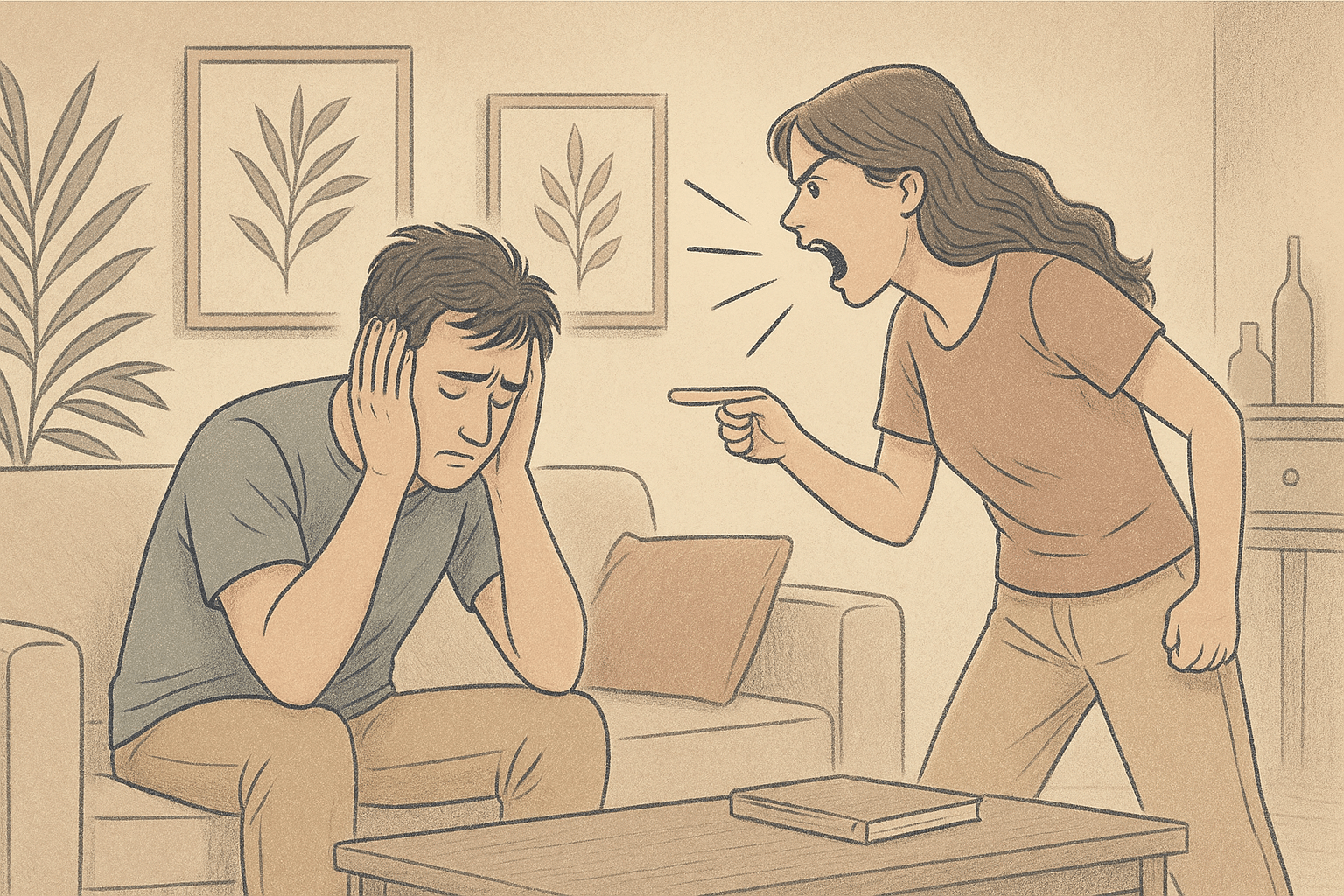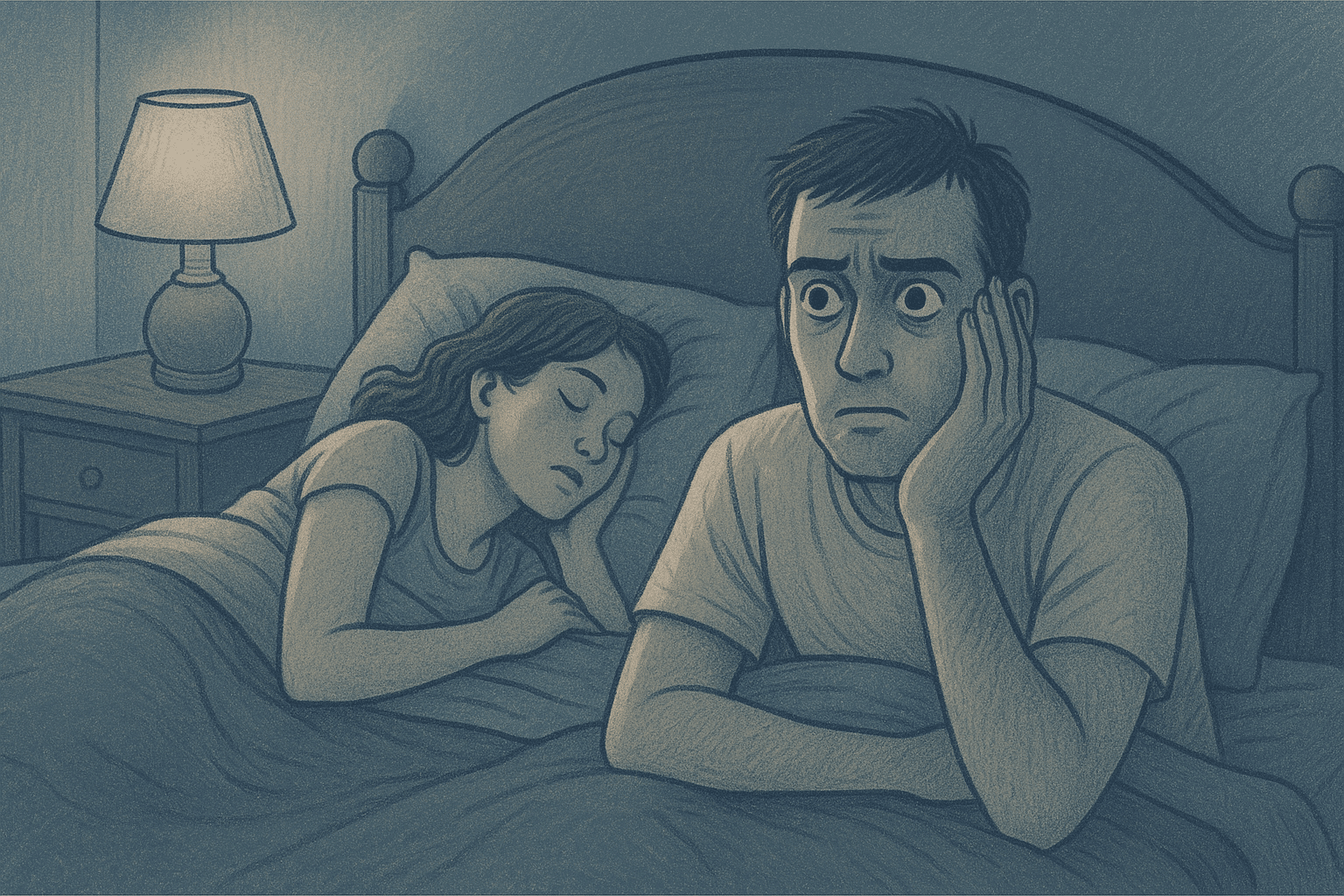Key Takeaways
- Anxiety attacks triggered by spousal interactions often stem from unhealthy relationship patterns that can be identified and addressed with professional help.
- Physical symptoms like racing heart, chest tightness, and sleep disturbances can signal relationship-induced anxiety that requires immediate attention.
- Implementing structured communication techniques and establishing clear boundaries can significantly reduce anxiety symptoms while improving relationship quality.
- Determining whether to work through relationship-induced anxiety or consider separation depends on safety factors, willingness to change, and the presence of professional support systems.
- A Mission For Michael provides specialized treatment for relationship-induced anxiety using evidence-based approaches including individual therapy, couples counseling, and anxiety-specific interventions.
Marriage Anxiety Crisis
When your marriage becomes a catalyst for anxiety attacks, you’re experiencing what mental health professionals might call a relationship-based anxiety crisis. This situation develops gradually as negative interaction patterns become entrenched, eventually creating a nervous system response where your body associates your spouse or specific relationship issues with danger.
What begins as occasional tension can escalate to a point where simply anticipating interaction with your spouse triggers physical anxiety symptoms.
Founded in 2010, A Mission For Michael (AMFM) offers specialized mental health care across California, Minnesota, and Virginia. Our accredited facilities provide residential and outpatient programs, utilizing evidence-based therapies such as CBT, DBT, and EMDR.
Our dedicated team of licensed professionals ensures every client receives the best care possible, supported by accreditation from The Joint Commission. We are committed to safety and personalized treatment plans.
Anxiety Attack Triggers In Marriage
Conflict Patterns
Recurring conflict follows predictable patterns in many anxiety-inducing marriages. These cycles typically begin with tension building around unresolved issues, escalate through triggering events, explode into full arguments, and eventually subside, only to repeat again later.
Your body learns to recognize even subtle signs that this cycle is beginning, triggering anxiety responses in anticipation of the coming emotional storm.
Communication Breakdowns

How your spouse communicates, or fails to communicate, can become a significant anxiety trigger.
Frequent interruptions, dismissal of your perspectives, aggressive tone, or stonewalling (refusing to respond) all signal that emotional safety is threatened. The unpredictability of not knowing how your words will be received creates a state of constant vigilance, where you’re perpetually monitoring yourself and your environment for potential problems.
Emotional Invalidation
Emotional invalidation occurs when your spouse dismisses, rejects, or minimizes your emotional experiences. This might happen through statements like “you’re overreacting” or “you’re too sensitive” when you express legitimate feelings. Over time, consistent invalidation creates a profound form of emotional insecurity.
You may begin to suppress your authentic emotional responses, creating internal pressure that eventually manifests as anxiety attacks. The disconnect between what you genuinely feel and what you’re “allowed” to express creates significant psychological tension.
Feeling Controlled
When your spouse monitors your behavior, restricts your independence, or makes disproportionate decisions about finances, friendships, or family matters, your autonomy becomes compromised. This loss of personal agency creates a persistent state of hypervigilance where you’re constantly assessing if your actions will trigger disapproval or conflict.
Symptoms of Anxiety
Panic Sensations
Acute anxiety attacks triggered by spousal interactions typically involve intense physical sensations that can be frightening in their severity. You might experience chest tightness or pain that mimics heart attack symptoms, making these episodes particularly terrifying. Rapid breathing, shortness of breath, and feeling like you can’t get enough air are common respiratory symptoms that can increase fear during an attack.
These physical responses reflect your body’s fight-or-flight system activating in response to perceived threat, even when that threat is an anticipated argument or criticism rather than physical danger.
Sleep Disruption

Sleep disturbances represent one of the most common and damaging physical effects of relationship-induced anxiety.
You might struggle to fall asleep as your mind replays recent conflicts or anticipates future interactions. Many people report waking frequently throughout the night, particularly after dreaming about relationship scenarios. This chronic sleep disruption creates a dangerous cycle where exhaustion further reduces your emotional resilience, making anxiety symptoms worse.
Chronic Tension
Persistent muscle tension, particularly in the neck, shoulders, and jaw, can lead to chronic pain conditions including tension headaches, temporomandibular joint (TMJ) issues, or back problems. This constant state of physical readiness for threat depletes your energy reserves, contributing to chronic fatigue and reduced immune function.
Digestive disruptions often become chronic with long-term relationship anxiety. Irritable bowel syndrome symptoms, reduced appetite, or comfort eating patterns commonly develop as your digestive system responds to constant stress hormones. Cardiovascular effects extend beyond acute episodes to include elevated baseline blood pressure and heart rate, potentially contributing to long-term health risks if the situation remains unaddressed.
Emotional Damage of Relationships Induced Anxiety
Erosion of Trust
When interactions with your spouse repeatedly trigger anxiety, trust in both the relationship and your own judgment becomes compromised. You may find yourself questioning if you can rely on your partner for emotional support or whether they truly have your best interests at heart.
This erosion extends to trust in your own perceptions is a particularly damaging outcome that makes it difficult to manage all relationships confidently.
Self-Doubt Spiral
When your spouse triggers anxiety attacks, it often creates a destructive cycle of self-doubt. You may begin questioning if you’re “too sensitive” or if you’re the problem in the relationship. This spiral typically begins with questioning your reactions (“Am I overreacting?”), then progresses to questioning your perceptions (“Did that really happen the way I remember?”), and eventually leads to questioning your worth (“Maybe I deserve this treatment”).
Each anxiety attack reinforces these harmful beliefs, creating a feedback loop that’s difficult to break without professional intervention.
Relationship Fear
Over time, anxiety triggered by spousal interactions can develop into broader relationship fears. You may begin to associate emotional intimacy itself with danger, making it difficult to imagine healthy connections even outside your current marriage. This fear response creates a painful dilemma: the human need for connection conflicts with the learned association between closeness and anxiety.
Breaking these associations requires creating new experiences that demonstrate relationships can be safe and supportive. This healing process often begins in therapeutic relationships before extending to other connections.
Getting Help Now
1. Individual Counseling

Individual therapy provides a safe space to evaluate your anxiety symptoms, identify triggers within your relationship, and develop personalized coping strategies.
Individual therapy approach is particularly valuable when your spouse is unwilling to participate in treatment or when you need to strengthen your own emotional resources before addressing relationship issues directly. Cognitive Behavioral Therapy (CBT), trauma-informed approaches, and mindfulness-based interventions have shown particular effectiveness for relationship-induced anxiety.
Through individual therapy, you can develop skills for managing acute anxiety symptoms while also addressing the deeper patterns that maintain your anxiety response.
2. Couples Therapy
When both partners are committed to improving the relationship, couples therapy offers powerful opportunities for transformation. A skilled couples therapist can help identify destructive interaction patterns, facilitate healthier communication, and guide both partners in understanding how their behaviors impact each other’s emotional wellbeing. This collaborative approach addresses both the anxiety symptoms and their relationship causes simultaneously.
3. Anxiety Treatment
Specialized anxiety treatment approaches may be necessary alongside relationship-focused work, particularly when anxiety symptoms have become severe or generalized beyond the relationship context.
These treatments might include specific therapeutic modalities like EMDR (Eye Movement Desensitization and Reprocessing) for trauma components, medication evaluation and management, or structured anxiety-reduction programs.
This integrated approach recognizes that long-term anxiety creates changes in both thought patterns and nervous system functioning that require specific interventions. By addressing these biological components alongside relationship patterns, you can achieve more complete and lasting recovery.
Managing Spousal Anxiety: AMFM’s Expert Support for Relationship-Induced Anxiety
At A Mission For Michael, we understand the complex patterns that develop when marital interactions consistently activate your stress response system, creating a cycle where love and fear become intertwined in ways that feel impossible to untangle.

AMFM’s comprehensive programs in California, Virginia, and Washington go beyond symptom management to address the root causes of spousal anxiety.
Through evidence-based therapies including Cognitive-Behavioral Therapy, couples counseling, and anxiety management techniques, we help clients develop the skills necessary to either transform their current relationship or make informed decisions about their future with professional guidance and support.
You don’t have to continue living in a state of hypervigilance within your own marriage. Contact A Mission For Michael today to learn how our specialized anxiety treatment can help you reclaim emotional safety and wellbeing, whether through relationship transformation or personal empowerment to make difficult but necessary life changes.
Frequently Asked Questions (FAQ)
Can marriage anxiety cause long-term health problems?
Yes, chronic anxiety triggered by marital interactions can contribute to significant long-term health problems if left unaddressed. The constant activation of your body’s stress response system taxes multiple physiological systems. Cardiovascular effects include increased risk of high blood pressure, heart disease, and stroke. Immune system suppression makes you more vulnerable to infections and may exacerbate autoimmune conditions.
How do I talk to my wife about my anxiety without making her defensive?
Choose a calm moment when you’re both rested and not already in conflict. Frame the discussion around your experience rather than accusations, such as saying, “I’ve noticed I’m experiencing anxiety symptoms during our interactions” rather than “You’re causing my anxiety attacks.” Be specific about the patterns that trigger your anxiety, but focus on observable behaviors rather than assumed intentions. Express your desire to work together on creating a healthier dynamic for both of you, emphasizing that addressing these patterns will benefit your relationship rather than just alleviating your symptoms.
Should I stay in a marriage that gives me anxiety attacks?
This deeply personal question depends on several key factors. First, assess whether the relationship contains elements of abuse or poses safety risks. If so, professional support for planning a safe separation becomes the priority. Second, consider if your spouse acknowledges their role in the dynamic and demonstrates willingness to participate in solutions. Relationships where both partners commit to change have significantly better prospects than those where one partner denies responsibility or refuses to adapt problematic behaviors.
How does A Mission For Michael help with relationship-induced anxiety?
A Mission For Michael provides comprehensive treatment for anxiety triggered by spousal interactions through individual therapy, couples counseling, and specialized anxiety interventions. Our evidence-based approaches include Cognitive-Behavioral Therapy to address catastrophic thinking patterns, communication skills training, boundary-setting techniques, and anxiety management strategies.
Our multidisciplinary team addresses both immediate anxiety symptoms and underlying relationship patterns, helping clients develop healthier interaction patterns while building personal emotional resilience and regulation skills.












